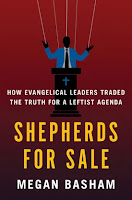The Thrill of Orthodoxy: Rediscovering the Adventure of Christian Faith by Trevin Wax. This book is an amazing reminder of the awesome nature of Christian orthodoxy. Wax does an especially good job of addressing the various ways our modern world, under the guise of theological or personal freedom, actually narrows and limits the remarkable things God offers us in Jesus Christ. Progressive society, which thinks it has more freedom, has actually settled for much less than God offers us in Christ.
Competing Spectacles: Treasuring Christ in the Media Age by Tony Reinke. At first glance, I thought this was a worldview books with spectacles being the lens through which we see the world. But in actuality, when Reinke speaks of spectacles, he is speaking of the way the world around us seeks to draw attention to itself (celebrities, politics, etc.). Reinke argues that no matter how attractive or absorbing the spectacle is that society offers us, the ultimate “spectacle” that should draw our attention is Christ crucified.The Anxious Generation: How the Great Rewiring of Childhood is Causing an Epidemic of Mental Illness by Jonathan Haidt. This is the first book on my “best” list that was not written by a Christian, but is so timely and helpful in so much of what is going on in the world. Haidt argues that smart phones, social media and online gaming have changed childhood, bringing with them increased anxiety, immaturity, depression, and many other problems.
 Bad Therapy: Why
the Kids aren’t Growing Up by Abigail Shrier. This is the other ministry “best” book not
written by a believer. That said, this
is a remarkable expose of how the so-called therapy that is offered our kids,
especially in public schools, is so damaging.
Continually hunting for trauma, foregoing actual parenting, “saving”
kids from any risk that actually brings growth and resilience, and over medicating them
are some of the many issues Shrier addresses.
And she is very clear – both therapists and parents are guilty in equal
measure.
Bad Therapy: Why
the Kids aren’t Growing Up by Abigail Shrier. This is the other ministry “best” book not
written by a believer. That said, this
is a remarkable expose of how the so-called therapy that is offered our kids,
especially in public schools, is so damaging.
Continually hunting for trauma, foregoing actual parenting, “saving”
kids from any risk that actually brings growth and resilience, and over medicating them
are some of the many issues Shrier addresses.
And she is very clear – both therapists and parents are guilty in equal
measure.
The Heart of Jesus: How He Really Feels about You by Dane Ortlund. This little book – only 100 pages – is a distillation of Ortlund’s book Gentle and Lowly. Although I read and enjoyed Gentle and Lowly, this book is wonderful because the same truths are there, but in a package that is much more digestible and much less intimidating for those who are not avid readers. What is the heart of Jesus toward you? Read it and find out!
Great books, but did not make it into the “best” category:
Trusting God
even when Life Hurts by Jerry Bridges
Warfield on
the Christian Life: Living Life in the
Light of the Gospel by Fred G. Zaspel
Letter to the
American Church by Eric Metaxas
Voices from
the Past, vol. 2, by Richard Rushing, ed.
Owen on the
Christian Life: Living for the Glory of
God in Christ by Matthew Barrett and Michael A. G. Haykin
Word Centered
Church: How Scripture Brings Life and
Growth to God’s People by Jonathan Leeman
God’s Grand
Design: The Theological Vision of
Jonathon Edwards by Sean Michael Lucas
Understanding
Scripture: An Overview of the Bible’s
Origin, Reliability and Meaning by Wayne Grudem, C. John Collins, and
Thomas Schreiner, eds
The
Flourishing Pastor: Recovering the Lost
Art of Shepherd Leadership by Tom Nelson
The Toxic War
on Masculinity: How Christianity
Reconciles the Sexes by Nancy R. Pearcey
Heart of the
Holy Land: 40 Reflections on Scripture
and Place by Paul H. Wright
The Saints of
Zion: An Introduction to Mormon Theology
by Travis S. Kerns
Is the
Commission Still Great? 8 Myths about
Missions & What they Mean for the Church by Steve Richardson
Can We Trust
the Gospels? By Peter J. Williams
Israel and the
Church: An Israeli Examines God’s
Unfolding Plans for His Chosen People by Amir Tsarfati
Reactivity: How the Gospel Transforms our Actions and
Reactions by Paul David Tripp
Gospel-Shaped
Marriage: Grace for Sinners to Love like
Saints by Chad and Emily Dixhoorn
The New
Creation Model: A Paradigm for
Discovering God’s Restoration Purposes from Creation to New Creation by
Michael Vlach
Malachi: God’s Unchanging Love by Walter C. Kaiser
Jr.
Seeking Allah,
Finding Jesus: A Devout Muslim
Encounters Christianity by Nabeel Qureshi
From Weakness
to Strength: 8 Vulnerabilities that can
Bring out the Best in your Leadership by Scott Sauls
Crucial
Accountability: Tools for Resolving
Violated Expectations, Broken Commitments, and Bad Behavior by Patterson,
Grenny, Maxfield, McMillan, Switzler
Live Your
Truth and Other Lies: Exposing Popular
Deceptions that make us Anxious, Exhausted and Self-Obsessed by Alisa
Childers
The
Advantage: Why Organizational Health
Trumps everything else in Business by Patrick Lencioni
The Titus
Ten: Foundations for Godly Manhood
by J. Josh Smith
The Joy
Switch: How your Brain’s Secret Circuit
Affects your Relationships – and how you can Activate it by Chris M.
Coursey
The Prodigal
God: Recovering the Heart of the
Christian Faith by Timothy Keller
The Secular
Creed: Engaging Five Contemporary Claims
by Rebecca McLaughlin
Social Justice
Fallacies by Thomas Sowell
The Unwavering
Pastor: Leading the Church with Grace in
Divisive Times by Jonathan K. Dodson
Reforming
Joy: A Conversation between Paul, the
Reformers and the Church Today by Tim Chester
Budgeting for
a Healthy Church: Aligning Finances with
Biblical Priorities for Ministry by Jamie Dunlop











































